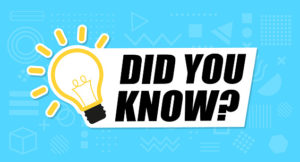What to do, and what not to do
There are many different ways to write an email. When you’re drafting a note to a current or potential business client though, being professional, courteous, and effective is a must.
You must create an email that not only gets your point across but also conveys the tone and meaning you are looking for.
When an email is not properly written or is written poorly, it can have the opposite effect from what you are looking for. Improperly drafted emails can cost you clients and money.
Creating the most effective marketing budget is key to how much money is needed to allocate to your email marketing campaign. Learn to set your marketing budget with one of our previous articles by clicking here.

Make Sure Message is Clear
One of the markers of a good email is that it is compact and fully informative.
The last thing you want is for the reader to open a lengthy email from you, and merely skim the content because of its length. Lest not even read it at all!
One way to make sure your intended recipient reads your message is to stick to a clear purpose. When you have a specific goal in mind, keeping your message on track is much easier.
Of course, there will be times when you need to send a great deal of information to a client such as Medicare coverage and plan details, and can’t easily put it down.
In these emails, stick to the information needed, so as not to bombard the client. Keeping the greeting short and sweet, with a separate email to check in with the client may serve you well also.
In sending emails with PII, don’t forget to follow all pertinent Medicare guidelines on compliance as well.

Your Tone Sets the Mood for Your Email
The tone of your email will be dependent on the recipient of your email, and the content encompassed. Like all languages, there are formal and informal ways to say things.
If you’re just checking in on your contact, there isn’t anything wrong with a jovial and pleasant tone to make sure your client is relaxed.
But, if you’re reaching out to a new contact, a more professional and reserved tone might be a better indication of higher proficiency.
The correct use of punctuation such as exclamation points can also set a light-hearted tone for your email. But, overuse can make you sound trivial and juvenile. There is a fine line! Use your discernment when setting the tone for the appropriate time.
Email Formatting is Key
Just like an essay or a book, there is a rather conventional format for emails as well.
In general, an email will contain a pleasant salutation, a body section with the information you wish to impart, and a closing accolade.
It’s rather like a conversation you would have in person. You greet the other person, talk for a bit, then say farewell.
When you follow this email format, it makes the message you’re trying to convey much easier to digest, creates a great flow from beginning to end, and helps promote comprehension and absorption of the content.
If you are sending an email to a potential client, it can be helpful to include a few bullet points in the main section too; to summarize, insert your offered deals or services, and can even be a great way to introduce links to webpages where they can do more research on their own.
Bullet points can even be used solely as a simple technique when writing to someone who is already in your contacts. They are a great way for you to hold the client accountable via lists when you need tasks completed for them in a timely fashion.
Something else that should not be overlooked is a good subject line for your email.
A subject line that is to the point and clear can make your email stand out from the rest in their inbox.
A great way to discern which types of subject lines will work for you is to look in your inbox, for examples.
Figure out which subject lines jump out at you, and take cues from them for writing your own.

Spelling and Grammar Always Matter
One of the biggest turn-offs in an email for many people is errors in spelling and grammar.
These simple missteps can greatly harm your client or potential client’s opinion of you in their eyes.
Spelling and grammar mistakes not only make you look rushed, or worse, poorly educated, but can also quite literally cost you money.
Prospective clients and lead generation can be lost before you even begin when they see these errors.
To convey your trustworthiness, utilize the spelling and grammar checkers that are built into almost every email system.
When you see a blue or red line under a word or phrase, don’t just ignore it. Those lines are there to draw attention to possible mistakes in your writing and could save you a ton of money.

Proofreading is a Key to Success
Once you’ve finished typing your email masterpiece, don’t just instantly hit send. Take the time to double-check and carefully proofread what you’ve written.
Sometimes you may use a word that is spelled correctly but doesn’t fit with the context of your email, or you’re using the wrong variant of a word. Oftentimes words such as there, their, and they’re are confused, as well as your and you’re, for example.
There are other sets of words that can be easily confused, but these are some of the biggest offenders.
Another thing you should look for when going through your email a second time is to make sure that the format, tone, and clearness of your email are what you are looking for.
It’s easy to slip into a tone that is too formal or too lax when writing a longer email, and the final proofread will help you catch that and other writing errors.
Templates are Your Friend
Lastly, if you are short on time, or just need a little assistance in your email writing, templates are a wonderful resource to help you put across exactly what you’re looking to say.
There are often several templates that are generic thank yous, follow-up emails, and other great tools for your email writing.
These can cut down on how much time you spend writing, and give you some great ideas on how to compose the rest of your emails, as well.
You can even set up your generic templates with some email clients so you don’t have to open an entire email over and over again.
Best Email Practice for Medicare Beneficiaries Conclusion
Some of the tips mentioned above may seem like common sense, but no one is immune from making a mistake or two from time to time, especially in our ever-busy culture.
As it is the main form of contact between you and some clients, realize first impressions are lasting in your emails.
When you use these tips and tools in writing your emails to clients, you already leap ahead of the rest of the field. This in turn can only help you to help more clients!




